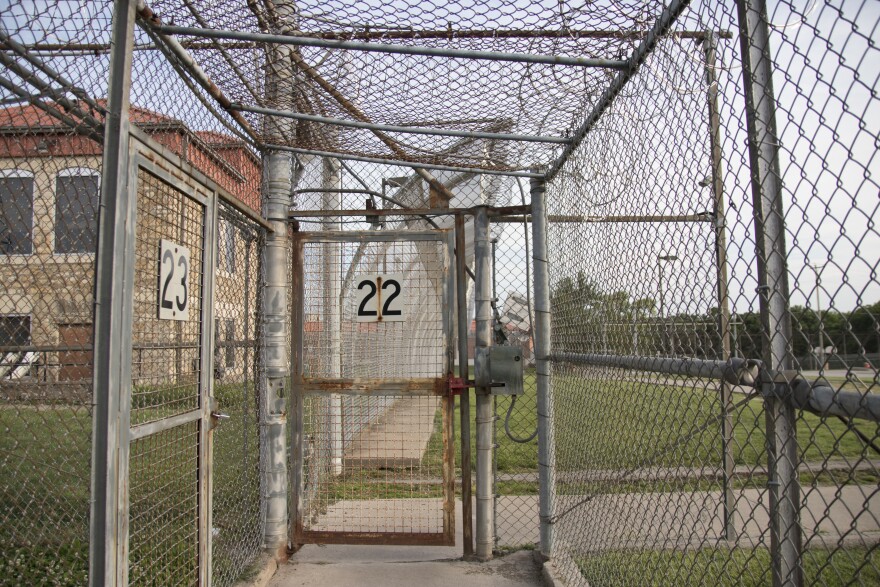TOPEKA, Kansas — When a man from Wichita lands in a prison in Lansing, Kansas, the U.S. Census counts him as a resident of Lansing. That ultimately shifts at least some federal money and political clout from Wichita to Lansing.
Some prisoner rights advocates see it as an often-overlooked form of gerrymandering that sucks away resources from poorer communities most likely to lose residents to incarceration.
Micah Kubic, executive director of the ACLU of Kansas, said that counting those inmates as part of the population of their home communities better reflects the state’s population. And while the census count isn’t due for another eight years, those numbers are being used while redrawing congressional and state legislative maps now.
Kansas has already started the redistricting process. A Republican-drawn congressional map passed both chambers of the state Legislature. A Gov. Laura Kelly veto of that map got overridden by lawmakers. That, in turn, triggered multiple lawsuits challenging the legitimacy of the map. State Senate and House maps will be drawn soon, and Kubic said it isn’t too late to make changes.
“(Legislators) have the power to do it if they wanted to,” he said. "So I don't think that we should give them a free pass and say that they can’t do anything about it now and that we have to wait until 2030.”
Sen. Rick Wilborn, chair of the redistricting committee, declined comment on the proposal.
Kansans convicted of felonies in prison, on parole or probation can’t vote, but Kubic said the way the state draws maps gives some people more political power than others.
In a case in Iowa, someone was elected to the Anamosa City Council with just two votes because so much of the district was made up of a prison population, leaving fewer total people eligible to vote. The council member represented the prison, but nobody behind bars could vote.
Most prisons in Kansas are in rural parts of the state and a prison can drastically shift a city or legislative district’s population. The Kansas Department of Corrections population counts available online do not go back to when the census was being counted, but based on the current population, the Lansing Correctional Facility is 21% of its city’s population and the El Dorado Correctional Facility is 14% of that city’s population.
Kubic said the current method of counting inmates overestimates the total size of rural cities and underestimates the size of urban, more populated parts of the state.
Trevon Barnett, an inmate at the El Dorado Correctional Facility, had never been to El Dorado until his conviction and can’t even name a single business in the city. Barnett plans on moving away from El Dorado once he is released later this year, but he is counted as an El Dorado resident until 2030.
“Home is in Kansas City, Kansas,” he said. “I don’t feel like I belong here at all.”
A 2019 study by Villanova University found that if Pennsylvania counted inmates based on their last non-prison address, four state legislative districts would be too small and four districts would be too big. The state would also likely gain another district where the majority of people were people of color. And while similar research hasn’t been done in Kansas, Kubic said the Wichita and Kansas City metro areas would likely grow in size.
“Parts of those areas that have large communities of color could benefit from additional representation from an adjustment,” he said.
But inmates are counted based on their prison address because it’s easier, said Margo Anderson, who has written multiple books on the census.
Anderson, professor emerita at the University of Wisconsin-Milwaukee, said census forms are sent to every address. When a form is not filled out at an address, someone checks on that address to see if the home is empty. But prisons, college dorms, military and nursing homes have constantly changing populations and sending the proper amount of forms to count everyone is difficult.
“The Census Bureau’s response has generally been, ‘We can’t do that,’” she said. ”So the discussion has shifted to the state government level.”
The Census Bureau contacts administrative officials at congregated settings to count the population. Proponents of keeping the current system say this is the easiest way to do it, and also argue prisoners are using the resources of the legislative district the prison is in, so they should be counted in that district.
Anderson said that issue has become more prominent in the last few decades as prison populations grew. About a dozen states have passed legislation to rethink how prisoners are counted on the census or in redistricting talks at a state or federal level. Rhode Island is the most recent state to do so after approving a bill last month.
“(States) don’t have to do anything at all,” Anderson said. “They can use the information that comes from the federal government, or they can, for redistricting purposes, pass a statute that says, ‘No, we’re going to put them back from where they came from.’”
Blaise Mesa reports on criminal justice and social services for the Kansas News Service in Topeka. You can follow him on Twitter @Blaise_Mesa or email him at blaise@kcur.org.
The Kansas News Service is a collaboration of KCUR, Kansas Public Radio, KMUW and High Plains Public Radio focused on health, the social determinants of health and their connection to public policy.
Kansas News Service stories and photos may be republished by news media at no cost with proper attribution and a link to ksnewsservice.org.





